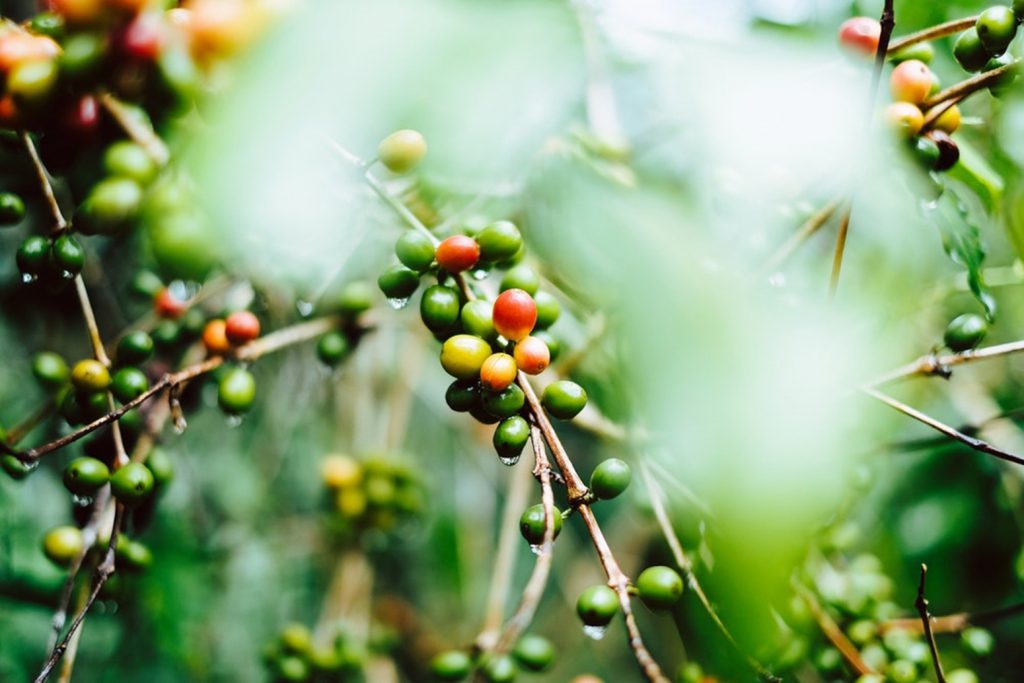CONTEXT
Although demand for coffee is constantly increasing, there has been a dramatic decline in coffee production in producing countries in the region over the past years. The reasons behind the low productivity include declining coffee plantation areas, which is contrary to the growing demand and consumption, degraded soil, aging coffee trees, inefficient land use, lack of business attitude, knowledge and skills among coffee farmers, and low adoption of best farming practices and management.
OBJECTIVE
To improve the economic viability of 10,500 smallholder coffee farmers in the three countries: Indonesia (7,000), The Philippines (1,500) and Thailand (2,000)
APPROACHES
In a strategic alliance, GIZ and Nestlé work together with 10,500 local coffee farmers in three countries, 2,000 of whom are in Thailand. The partners aim to make coffee farming economically more attractive and to increase the incomes that coffee farmers can earn, thus improving their livelihoods. To achieve this, the Coffee+ Project is designed to address the three levels in parallel namely, the farmer level, the organisational level, and the policy level.
At the farmer level, the project provides capacity development to smallholder coffee farmers by equipping them with an entrepreneurial attitude, knowledge and skills through GIZ’s learning tool called “Farmer Business School (FBS)” which is packed with interventions on the best farming practices and diversified income through the inter/multi-cropping system.
At the organisational level, the project strengthens the existing structure of the farmer group/organisation and supports the creation of local ownership and learning alliances.
To secure the long-term sustainability of the measure, the project designs policy and stakeholder dialogue modules in providing advice and supporting the implementation of the Thai Coffee Strategy at the national and local levels by facilitating the development of a local (provincial) coffee roadmap aligned with the national coffee strategy. To ensure optimal outreach, the knowledge and learning tools developed in the partnership are publicised and made available through collaboration with our learning alliance on various platforms. A sustainable farming and supply chain for sourcing Robusta Coffee is also being established.
RESULTS SO FAR
- Capacity Building in Farmer Business School (FBS)
- Trainers: Training of Trainers (ToT), Refresher Training
- Farmers: Training of Farmers (ToF). In total, 2020 farmers attended the full FBS Course between September 2018 and January 2020. As of May 2022, 1,511 farmers have received follow-up and coaching. 59.76% have adopted key ADP/ FBS practices. Technical training on techniques to improve coffee productivity as well as cost reduction were also provided to coffee farmers. 62% adopted key agronomic practices.
- Farmer Groups: Farmer groups engaged and developed a joint action plan. Capacity building of farmer groups was provided as well as experience sharing between successful farmer groups and newcomers to coffee farming.
- Knowledge Products
- Trainers’ Guidebook on Farmer Business School (FBS)
- Training Workbook for Farmers on Farmer Business School (FBS)
- Best farming practices/techniques to improve coffee productivity and cost reduction
- Intercropping Booklet in English and Thai
- 2D infographic animation on FBS
- Cartoon Handbook Guide to FBS in English and Thai
- E-learning tools via DOA-SmartBox, Plant For U application for android mobile and tablet.
- Intercropping Model
- 3 intercropping models have been developed
- 17 demonstration plots have been established and will be monitored by the project
- Collaboration and Partnership with Stakeholders
- Collaboration with national and local (provincial) government agencies (implementation of national policy strategy, development of Chumphon Robusta Coffee Roadmap, setting up of the working group on fostering implementation of Robusta Roadmap of Ranong)
- Collaboration and partnership with Chumphon College of Agriculture and Technology to develop short course (36 hours) on Coffee Farmer Business School (FBS) and establish demonstration plot on coffee intercropping model.
- Collaboration with Faculty of Agricultural Economic, Prince of Songkhla University to conduct FBS-online course for farmers.
- Institutionalisation of Project Approaches and Knowledge
- The FBS curriculum is accepted by the lead agency mandated for agricultural extension service. The responsible staff from the Department of Agricultural Extension (DOAE), the Department of Agriculture (DOA) and Prince of Songkhla University are equipped with FBS skills and knowledge for Training of Trainers and Training of Farmers, and the FBS programme is integrated into their work plan through cooperation with the Coffee+ Project.
- E-learning tools under the Ministry of Agricultural Cooperative (MOAC) is created through a learning alliance with DOA to extend knowledge on FBS via various platforms to 800 learning centres at district levels across the country and for the general public:
FINANCED BY
German Federal Ministry for Economic Cooperation and Development (BMZ) via DeveloPPP.de
COUNTRY
Thailand
PROJECT PARTNER
Nestlé (Thai) Ltd
PROJECT DURATION
01/2018 – 07/2022
TO LEARN MORE ABOUT PROJECT
หลักสูตรโรงเรียนธุรกิจสำหรับเกษตรกร (Farmer Business School: FBS)
MORE INFORMATION
Coffee+ | Sustainable Agrifood System in ASEAN (asean-agrifood.org)
